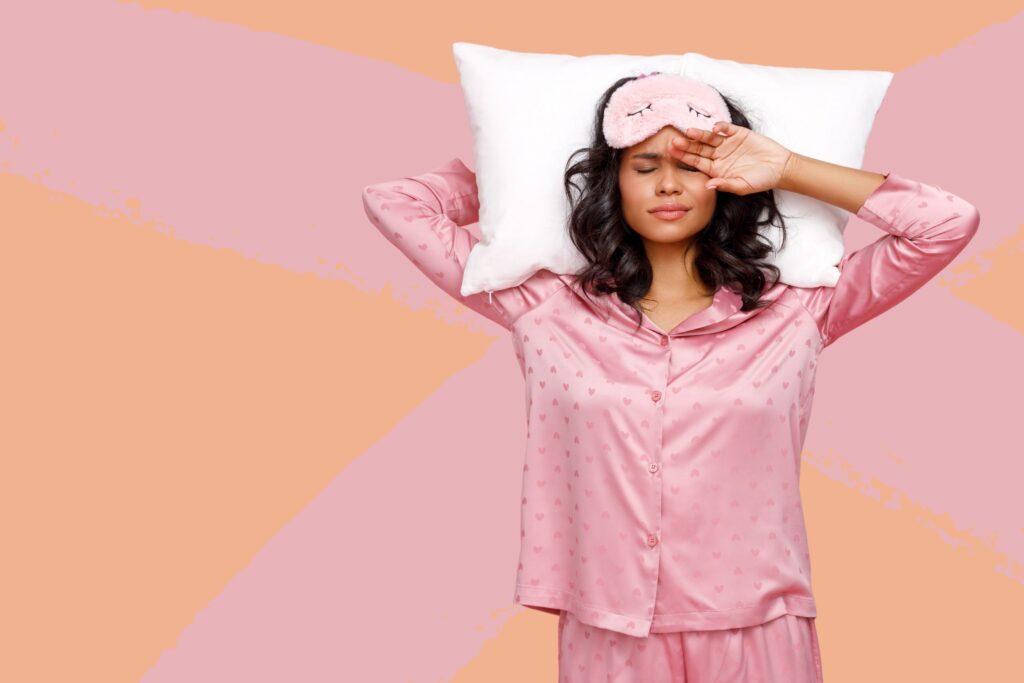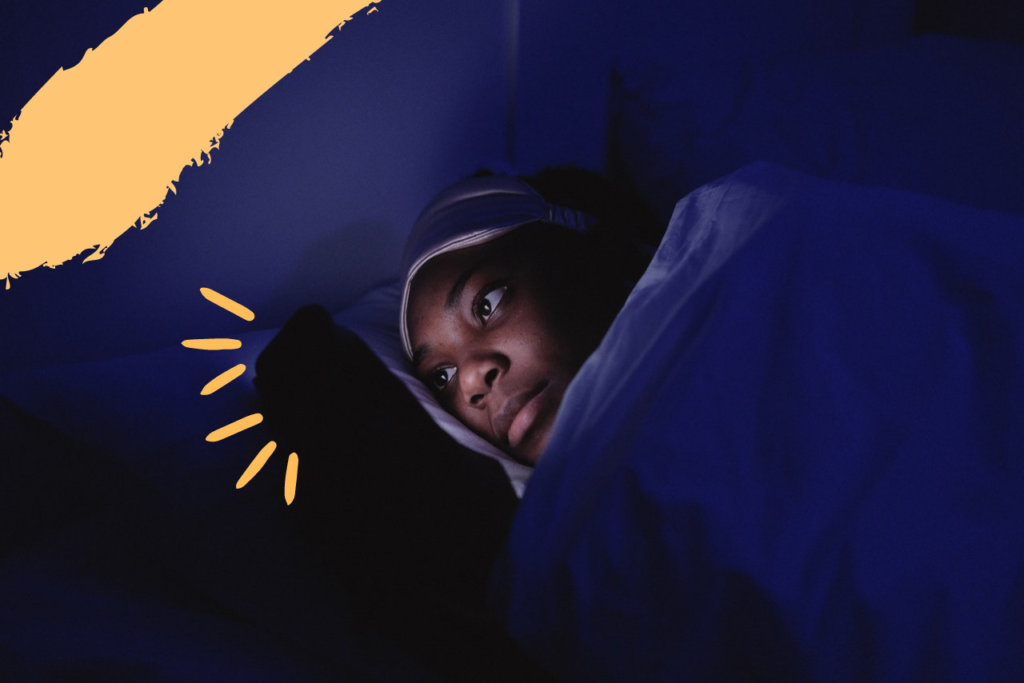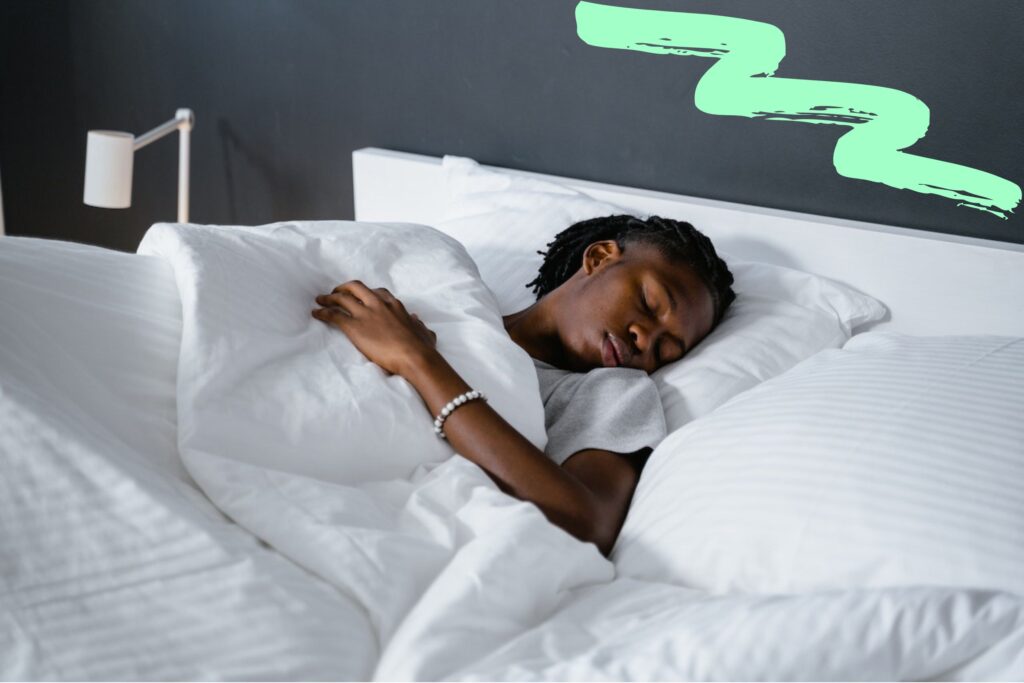Don’t you just love that glorious moment, where head meets pillow, dreams supersede reality and a night of replenishment beckons…
*sound of record scratching*
Woah, woah, woah….sorry to snap you out of it there, but things, quite bluntly, are rarely that simple. Instead, insomnia is one of modern life’s greatest afflictions, thought to affect at least one in three adults at one time and responsible for anger, irritability, frustration, low mood, aches and pains. And that’s after just one night of bad sleep.
In the long run, the risks are even greater, including a higher chance of developing diabetes, depression, heart attack, stroke and many more things you’d really rather avoid.
Fortunately, there are things you can do to give yourself the best possible chance of a fine night’s Zzzeds, and these are those; our 8 smart ways to make your sleep deeper and more restful.
Cosy Corner
Having a comfy environment to sleep in is important, and a good mattress is perhaps the most important physical, tactile aspect of your sleeping arrangement. Arguably, the best mattress you can get is a high quality foam mattress as they offer the ideal middle ground between resistance and give, and are firm enough to support your back while still being comfortable. If you’re a side sleeper, you should certainly go for foam, as the material does the best job of conforming to the contours of your body.
Should you live in a country that endures hotter nights than the UK, then be warned that foam does tend to trap heat. Innerspring and hybrid mattresses, in general, allow air to flow more easily. While we’re on the subject of temperature, your bedroom should be between 16°C and 18°C to ensure the best night’s sleep. In the UK, you usually only need to crack a window in summer and employ a thicker duvet in winter to ensure this.

Control The Light
Light impacts our melatonin levels, which affects our ability to fall asleep. When it’s dark, your brain starts to release melatonin, which readies your body for sleep. Therefore, you should try and get as much sunshine as possible during the day to keep yourself alert. In the hours leading up to bed, avoid overexposure to light, particularly that pesky blue stuff that comes off your phone.
Simple things like having your morning coffee and work breaks outside will help you stay awake throughout the day, fending off naps that interfere with your circadian rhythm and ensuring your body clocks ticks evenly when night falls.
When the flow of natural light lessens with the seasons, consider using a light therapy box or SAD light – helpful for those long winters, particularly. Indeed, many believe that red light therapy is highly effective for sleep, though a scientific consensus hasn’t quite been reached yet, admittedly.

Get In Sync With Your Body
One of the most effective ways to make your sleep deeper and more restful is to fine-tune your brain and your body, which will allow you to formulate a natural sleep-wake cycle. To do this, make sure you go to sleep and wake up at the same time every day, which will ensure you’re productive and fresh at the right time, as well as being tired when it’s actually welcome to be so.
Check out these 8 expert-approved ways to become a morning person for more on how to wake up in the right frame of mind to tackle the day, and because we love you so much, we’ll redirect you to these 5 IDEAL steps to the perfect bedtime routine, too.
Two sets of tips in just one paragraph; we’re really spoiling you! You can thank us later.
Day Time Workouts
Regular exercise is a great way to achieve a good night’s sleep, since it allows you to stay awake during the day – promoting blood circulation and producing endorphins – and helps you feel sleepy in the evening, since your body will be keen to recover from the workout.
What’s more, regular exercise is associated with lowered stress levels, which, you guessed it, can wreak havoc with your sleep when they’re higher.
However, you do need to make sure that you time your workout right. Doing a heavy workout shortly before you intend to hit the hay will raise your body’s temperature, increase your metabolism, and stimulate a range of hormones – these aren’t things that will help you sleep. The best time to exercise is in the morning or afternoon, and hey, if you can take that exercise outside when it’s sunny, you’ll be doing your sleep even more favours!

Consume Smartly
What you eat and drink and when you do it has a huge impact on your ability to sleep. Accordingly, you should try and have a healthy balanced diet that includes plenty of vegetables, fruit, and healthy fats.
Try and avoid having too many refined carbs, such as bread and pasta, particularly for dinner, as they can cause a spike in blood sugar which, in turn, may leave you feeling restless and awake at night.
Though you may think alcohol makes you sleepy and coffee wakes you up, they actually harm the quality of your rest when consumed close to bedtime. If you’re going to have a glass of wine, do so before or with dinner and not later in the evening. Alcohol works as a diuretic, dehydrating you and increasing your need to go to the loo; two things that are certainly not conducive to a good night’s sleep.
On the flip side, what you do eat and drink can have a positive effect on your sleep, too. One way to improve sleep is to try natural supplements that are reported to help with sleep; chamomile, valerian root and lavender are all believed to help soothe a racing mind, and accordingly, are the key ingredients in many high street ‘sleepy’ tea blends.
Embrace Natural Remedies
Beyond the usual suspects of chamomile tea and lavender pillow sprays, there’s a whole world of natural sleep aids worth exploring. Magnesium, for instance, plays a crucial role in regulating neurotransmitters that calm the nervous system; many people find a supplement taken an hour before bed helps them drift off more easily. Glycine, an amino acid, has shown promise in studies for improving sleep quality, while tart cherry juice is one of the few natural dietary sources of melatonin.
For those who’d rather not add another pill to their evening routine, natural sleep patches offer an alternative delivery method, releasing ingredients like melatonin, valerian, and hops transdermally throughout the night. They’re particularly handy for travellers dealing with jet lag or anyone who finds supplements play havoc with their stomach.
Then there’s the old faithful: a warm bath with Epsom salts about 90 minutes before bed. The magnesium absorbs through the skin, and the subsequent drop in body temperature as you cool down mimics the natural dip that signals sleep time to your brain. Low-tech, perhaps, but sometimes the simplest solutions really are the most effective.

Incorporate Aromatherapy
Speaking of which, introducing aromatherapy into your sleep routine can be a natural and effective way to enhance sleep quality. Essential oils such as lavender, bergamot, sandalwood, and frankincense are known for their calming properties and can help to reduce stress and anxiety levels.
You can use these oils in several ways; add a few drops to a diffuser in your bedroom an hour before bedtime, mix them with a carrier oil and apply to pressure points like your wrists or temples, or sprinkle a few drops onto your pillow. The soothing scents can help to trigger a relaxation response in the brain, setting the stage for a deeper and more restful night’s sleep.
Read: The quintessential guide to relaxing aromas for every room in your home
Clear Your Mind
When your mind is full of thought, worry, and stress, you will find it impossible to get back to sleep. Try doing some calming meditation before you go to sleep – there are some great mindfulness apps out there that will help guide you in your journey to a clear mind. Many boast features specifically tailored to helping you get in the right frame of mind for sleep.
The Bottom Line
If only getting a good night’s sleep was as easy as clicking your fingers and entering the land of nod. Sadly, it takes a little more effort than that, but with the right approach to diet, stress relief, exercise, control of light, temperature, and even mattress quality, you’ll give yourself the best possible chance of a restful night’s sleep. Good luck and we’ll see you tomorrow, bright and early?
Hey, to ensure that morning is fresh and full of potential, check out these 7 morning rituals to start your day off right. You won’t regret it!





